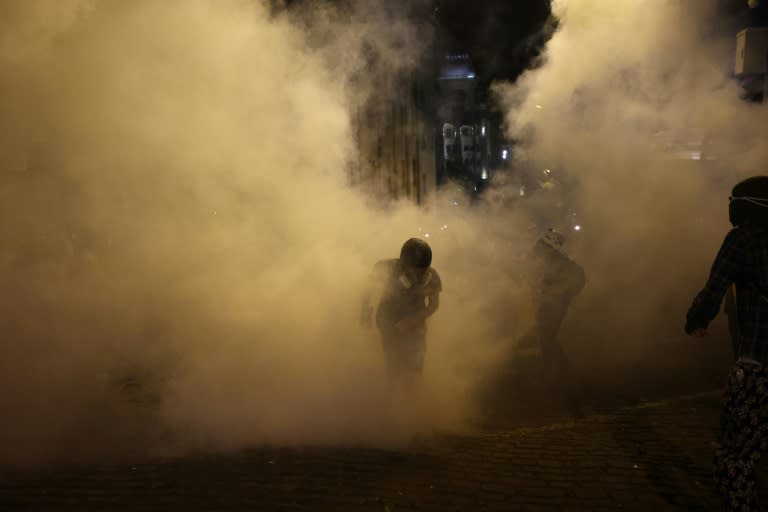Georgian opposition fears violence now 'out of control'

When Georgian university lecturer Gia Japaridze began receiving phone calls from unknown people threatening to murder him, he knew his work with the opposition had not only become dangerous, but potentially deadly.
The 50-year-old campaigned against the Caucasus country's new "foreign influence" law targeting rights groups and the media, and had just finished a meeting with foreign ambassadors urging them to sanction the ruling party when men ambushed him outside his home in Tbilisi.
"I felt blows from behind, from both sides," said Japaridze, who worked as a diplomat for 10 years before becoming active in Georgia's opposition.
"They started beating me with heavy sticks. I was 100 percent sure they were going to kill me," he said.
Since lawmakers in the ex-Soviet republic introduced the "foreign influence" bill in April, activists, independent journalists and politicians opposed to the legislation have faced weeks of violence and threats.
The ruling Georgian Dream party has denied planning the attacks, accusing the opposition of reckless scaremongering.
But rights groups have said the beatings, both by riot police and unknown individuals, are part of a targeted campaign designed to intimidate those critical of the government.
At least six public figures have been assaulted in the past two months, including Levan Khabeishvili, the chair of Georgia's main opposition party United National Movement (UNM), who was severely beaten by police during mass demonstrations against the law.
"They were so aggressive, I don't remember being beaten like that in my life," Japaridze said of his attackers.
"I spoke to maybe 10 ambassadors, explaining to them that the situation was now out of control."
- 'They would've killed me' -
After the government introduced the bill, which obliges organisations receiving at least a fifth of funding from abroad to register as agents of "foreign influence", mass protests broke out.
Film producer Guka Rcheulishvili, who took part in the rallies, said he did so out of a fear the Georgian government wanted "the same kind of system as the Russians have."
He told AFP he was attacked by riot police despite having "done nothing".
"It lasted for several minutes. If they had the order, I think they would've killed me," the 44-year-old said.
"I have never seen so much hatred from anybody," he told AFP, saying police had called him a "traitor" while carrying out the beating.
There have been no prosecutions against those accused of attacks, said Guro Imnadze, a lawyer from Tbilisi-based human rights group Social Justice Center.
"Previously, when there was violent conduct, the government was always distancing itself," he told AFP.
"Now it is actually open violence," he said.
Georgia's interior ministry did not immediately respond to a request for comment, but has previously rejected claims police have used excessive force on a systematic basis.
- 'It will get even worse' -
Georgian Dream says the legislation -- signed into law by the parliament's speaker on Monday -- is aimed at ensuring transparency among NGOs.
It has denied any government role in the violence against protesters.
Justice Minister Rati Bregadze suggested that protesters may have "beaten themselves up" and that any instances of violence among them would be investigated.
But in late May, the head of police special forces Zviad Kharazishvili said he had a "list" of people who would be targeted at protests -- an admission that drew condemnation from lawyers and the opposition.
Rights groups have expressed fears the level of political violence and reported police misconduct, both of which have been a problem in Georgia since it became independent from the USSR in 1991, is not subsiding.
Georgia's Special Investigation Service said in May it had opened a criminal probe into the alleged use of excessive force against protesters and would pursue any potential crimes.
"The public will be informed of the progress and outcome of the investigation," it said.
But many Georgians are sceptical.
"If previously there were cases of violence, of police misconduct, of police abuse of power, now it is getting more systematic, regular," Imnadze said.
"What I am afraid of is that it will get even worse."
cad/jc/rox

 Yahoo News
Yahoo News 
